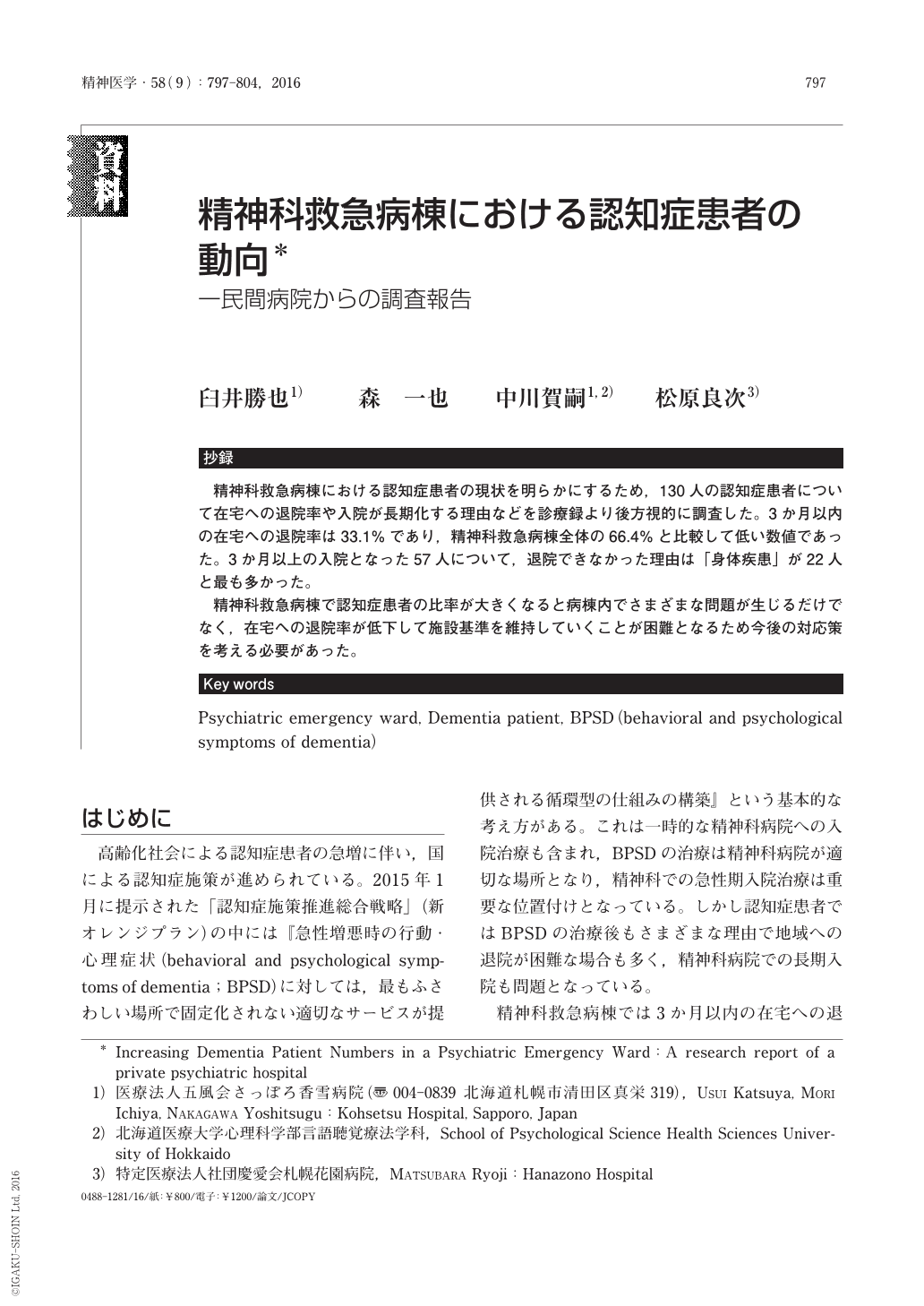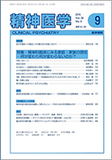Japanese
English
- 有料閲覧
- Abstract 文献概要
- 1ページ目 Look Inside
- 参考文献 Reference
抄録
精神科救急病棟における認知症患者の現状を明らかにするため,130人の認知症患者について在宅への退院率や入院が長期化する理由などを診療録より後方視的に調査した。3か月以内の在宅への退院率は33.1%であり,精神科救急病棟全体の66.4%と比較して低い数値であった。3か月以上の入院となった57人について,退院できなかった理由は「身体疾患」が22人と最も多かった。
精神科救急病棟で認知症患者の比率が大きくなると病棟内でさまざまな問題が生じるだけでなく,在宅への退院率が低下して施設基準を維持していくことが困難となるため今後の対応策を考える必要があった。
In Japan, the number of patients with dementia is increasing rapidly. Therefore, many are hospitalized for acute stage treatments in psychiatric emergency wards.
We retrospectively investigated the discharge rate and reasons for prolonged hospitalization in 130 patients with dementia who were admitted to a psychiatric emergency ward from April 2013 to March 2014.
The discharge rate, to being at home within three months, was 33.1% in the 130 patients. On the other hand, that rate of psychiatric emergency ward was 66.4%. For approximately 57 patients who were hospitalized for more than three months, the reasons that they were not able to leave the hospital were physical complications and severe behavioral and psychological symptoms such as wandering.
As the number of dementia patients in psychiatric emergency wards becomes larger, not only will various problems occur in the ward, but also the discharge rate will decrease. As a result, we cannot maintain the facilities' standards with increased usage. Thus, we need to think of future countermeasures to address this problem.

Copyright © 2016, Igaku-Shoin Ltd. All rights reserved.


